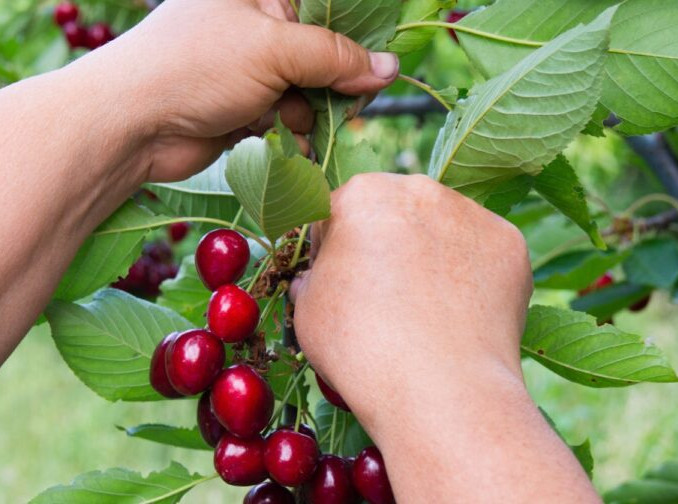The cherry-growing heart of Apulia is on its knees. The abnormal frosts in March and April devastated cherry production, with losses ranging from 70% to 100% in the countryside of southeastern Bari.
The disaster was reported by Coldiretti Puglia, which is calling for the immediate declaration of a state of natural disaster and increased controls on the origin of the products sold in Italian markets.
Meanwhile, in Milan, sky-high prices have been recorded: up to €23.3 per kilogram (approx. $25.40 USD/kg) for cherries, a figure that raises questions about traceability and the actual origin of the product on display.
Most affected varieties
Among the varieties most damaged by the frosts are the early-ripening Georgia and Bigarreau, but the hardest hit was the prized ‘Ferrovia’ cherry, a symbol of Apulian cherry farming.
Frost-burned blossoms drastically compromised yields, with heavy consequences for the entire supply chain. Coldiretti warns: without targeted checks, the market could be flooded with foreign products passed off as Italian.
Costs, drought and imports
In addition to the low yields, Apulian farmers are grappling with soaring production costs and increasingly severe drought.
Despite the limited supply, production prices are not enough to offset losses. Meanwhile, families are reducing purchases under the pressure of food inflation.
Worsening the situation is the threat of imports from North African countries such as Egypt, Tunisia, and Morocco, which risk disrupting the market with products of uncertain quality and origin.
Coldiretti is calling for the introduction of the principle of reciprocity: all products entering Europe must comply with the same environmental standards, as well as health and social standards, in force in the internal market.
Quality, labor and territory
Apulia is Italy’s leading cherry-producing region, with about 18,000 hectares under cultivation, over 17,000 of which are in the province of Bari.
Here, approximately 30% of Italy’s cherries are produced, destined exclusively for fresh consumption.
Processing cherries, especially varieties like ‘Ferrovia’, requires skilled labor: shape, texture, and flavor are the result of careful cultivation practices and manual harvesting.
Mechanization is impossible without compromising quality.
To protect and revive the sector, Coldiretti proposes building a structured supply chain and introducing a recognizable territorial label – such as the Protected Geographical Indication (PGI) – capable of enhancing the excellence of Apulian cherries on both national and international markets.
Nutritional benefits and support
Cherries are not only delicious but also valuable allies for well-being: low in calories, rich in vitamins A, C, and B group, and containing essential minerals such as iron, calcium, magnesium, and potassium.
Thanks to the presence of natural melatonin and antioxidants, they promote sleep and combat oxidative stress.
At such a critical time for the supply chain, it is more urgent than ever to support Italian produce and ensure transparency from field to table.
Source text and image: www.corriereortofrutticolo.it
Cherry Times - All rights reserved










